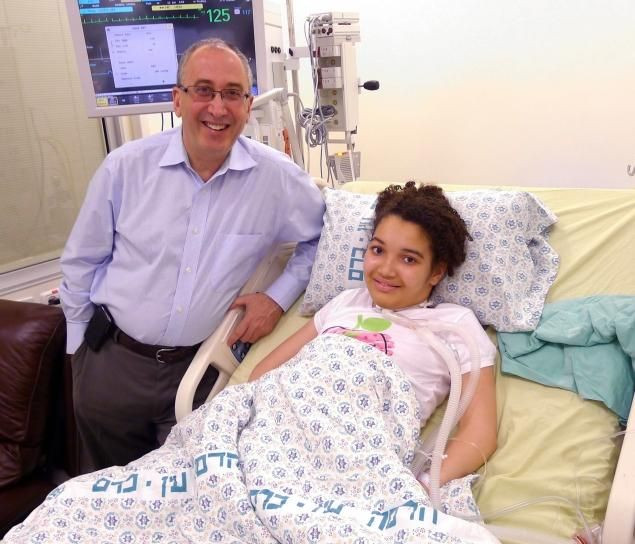Maria Amman, Paralyzed Palestinian Girl in Israel, Receives ‘Miracle Surgery’ From New York Doctor

Meet Maria Amman – a happy, strong, and beautiful Palestinian girl of thirteen who hasn’t been able to use her sense of smell in years, due to an Israeli attack that left her paralyzed when she was six years old.
Seven years ago, Maria and her family were hit by an Israeli rocket in Gaza, which killed her two brothers, mother, aunt and grandmother, but she survived, along with her father and younger brother. Now thirteen, Maria has spent years in an Israeli hospital, but will soon see better days with the success of a recent surgery performed by a New York doctor who traveled to Israel to treat her.
The attack that destroyed her family had injured her spinal cord, leaving her paralyzed. She was also dependant on a ventilator from that day on in order to speak and breathe.
Immediately after the attack, she was brought to a hospital in Israel, where she was treated. Soon enough, the Israeli government attempted to force Maria, her father, and her younger brother to go back to Palestine. Her doctors believed she wouldn’t receive the same quality of care in Palestine, so her father sued the Israeli government to allow her to stay and ultimately won her health care to be paid for by the state as well.
"[W]ith Maria, the political complication of the Israeli-Palestinian conflict, and the lack of appropriate home-ventilation servicing in Gaza, meant that there was no 'home' for her and her father to go back to,” Dr. Eliezer Be’eri, director of the department of respiratory rehabilitation at ALYN Pediatric and Adolescent Rehabilitation Center in Jerusalem, told the NY Daily News. “Our hospital became her home for five years, until she was granted resident status in Israel with full healthcare benefits.”
Dr. Mark Ginsburg, chief of thoracic surgery at Good Samaritan Regional Medical Center in New York, came into the picture when he discovered Maria’s condition could be improved through an uncommon surgery. He would install a phrenic nerve pacemaker and stimulate her breathing without a ventilator.
According to Ginsburg, only about 40 or 50 of these surgeries are performed worldwide annually. Because Maria had no brain injury and an upper spine injury, she happened to be a good candidate for the unique surgery.
A phrenic nerve pacemaker stimulates phrenic nerves, which causes the diaphragm to contract, and ultimately allow the patient to breathe without a ventilator.
"When I met her in 2010, she could smile when you spoke to her, but she couldn't speak — [just] a little bit, around the ventilator,” Dr. Ginsburg told the NY Daily News. “She hasn't smelled anything in seven years.”
Maria’s dream of being able to smell the sea will now be possible once she fully recovers from the surgery.



























